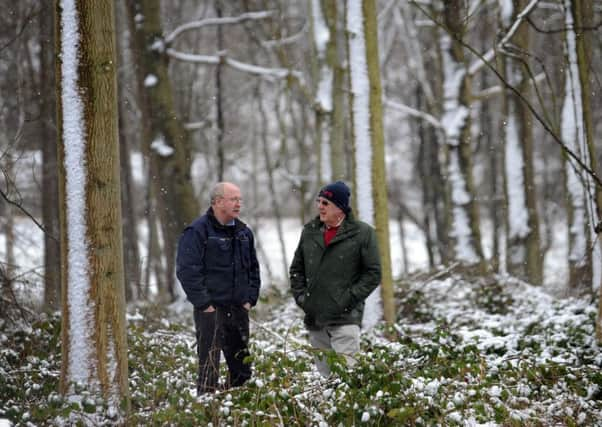Awards to recognise smart use of Yorkshire woodlands


This year the Royal Forestry Society concentrates its annual Excellence in Forestry awards on Yorkshire and the north of England for the first time in seven years and David Carter, the chairman of the Yorkshire division of the RFS, is hoping that entries will come from throughout the county before the deadline of March 8 and intoxicate the judges with their approaches to educating us all further.
“Woodland management is far better now than in the 1980s. The introduction of such as the Woodland Grant Scheme and the Farm Woodland Scheme paved the way for owners to become more involved with their woodlands in the early 90s. The Forestry Commission and Forest Enterprise have done a brilliant job in encouraging and attracting more visitors into woodlands. It’s important there is a commercial basis and tourism is one aspect. The main one is timber and this generally helps pay for the woodland to continue looking well.
Advertisement
Hide AdAdvertisement
Hide Ad“With the awards we’re looking for excellence in all areas, whether for timber production, the look of the woodland or what it is providing by way of education and amenities. We’re looking for entries from large estates, smaller estates, farms, urban woodland and the larger managed forests.
“We particularly want to recognise projects that engage and inspire young children and we’re wanting entries from schools too. A recent survey reported that one in nine children have never been outdoors properly, into the countryside. There’s a massive educational job to be done.”
One estate that won’t be entering this time is Castle Howard, where I met up with David and the estate’s forestry manager Nick Cooke. Nick has worked on the estate for 40 years and is responsible for 816 hectares of commercial woodland. He was born in Carlisle, came to Yorkshire to study environmental science at Bradford University in 1973 and fell in love with Castle Howard during his year out from his studies. He’s previously received an RFS Long Service award.
“We’ve a big project this year with a major lime avenue restoration we’re undertaking. It’s one of the biggest of its kind in the country and that’s our priority.”
Advertisement
Hide AdAdvertisement
Hide AdNot everything in the woodland garden is rosy at present. Timber prices are dropping and both woodchip and firewood prices are down, in part due to changes in renewable heating grants. Willow coppice, touted in the 90s as another useful crop, has hit the buffers; and a disease called phytophthora is attacking larch and has seen plantations destroyed. It was found in Yearsley, seven miles from Castle Howard’s 500 acres of larch last year.
“If it was found that we had the larch disease here on the estate the landscape would be devastated as we would have no choice but to fell it under a sanitary felling order,” says Nick. “Our finances would be affected too as diseased timber is only worth a fraction of the normal price, but our other big threat here are grey squirrels. It’s the damage they do to hardwoods and conifers because they strip the bark.”
David was a valuer and auctioneer at Dee & Atkinson in the East Riding before joining ADAS working in Northallerton and Pickering where he advised on farm woodland schemes and planting grants. He said: “There are some really innovative and enthusiastic woodland managers and owners in Yorkshire.”
For details on the awards, visit www.rfs.org.uk/awards